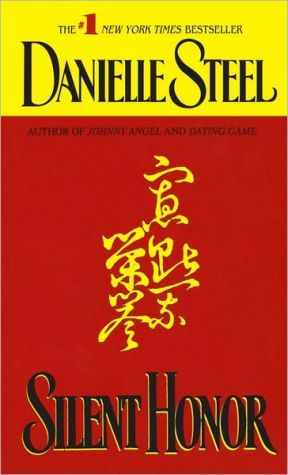Silent Honor
Silent Honor
Couldn't load pickup availability
In her 38th bestselling novel, Danielle Steel creates a powerful, moving portrayal of families divided, lives shattered and a nation torn apart by prejudice during a shameful episode in recent American history.
A man ahead of his time, Japanese college professor Masao Takashimaya of Kyoto had a passion for modern ideas that was as strong as his wife's belief in ancient traditions. It was the early 1920s and Masao had dreams for the future—and a fascination with the politics and opportunities of a world that was changing every day. Twenty years later, his eighteen-year-old daughter Hiroko, torn between her mother's traditions and her father's wishes, boarded the SS Nagoya Maru to come to California for an education and to make her father proud. It was August 1941.
From the ship, she went directly to the Palo Alto home of her uncle, Takeo, and his family. To Hiroko, California was a different world—a world of barbeques, station wagons and college. Her cousins in California had become more American than Japanese. And much to Hiroko's surprise, Peter Jenkins, her uncle's assistant at Stanford, became an unexpected link between her old world and her new. But in spite of him, and all her promises to her father, Hiroko longs to go home. At college in Berkeley, her world is rapidly and unexpectedly filled with prejudice and fear.
On December 7, Pearl Harbor is bombed by the Japanese. Within hours, war is declared and suddenly Hiroko has become an enemy in a foreign land. Terrified, begging to go home, she is nonetheless ordered by her father to stay. He is positive she will be safer in California than at home, and for a brief time she is—until her entire world caves in.
On February 19, Executive Order 9066 is signed by President Roosevelt, giving the military the power to remove the Japanese from their communities at will. Takeo and his family are given ten days to sell their home, give up their jobs, and report to a relocation center, along with thousands of other Japanese and Japanese Americans, to face their destinies there. Families are divided, people are forced to abandon their homes, their businesses, their freedom, and their lives. Hiroko and her uncle's family go first to Tanforan, and from there to the detention center at Tule Lake. This extraordinary novel tells what happened to them there, creating a portrait of human tragedy and strength, divided loyalties and love. It tells of Americans who were treated as foreigners in their own land. And it tells Hiroko's story, and that of her American family, as they fight to stay alive amid the drama of life and death in the camp at Tule Lake.
With clear, powerful prose, Danielle Steel portrays not only the human cost of that terrible time in history, but also the remarkable courage of a people whose honor and dignity transcended the chaos that surrounded them. Set against a vivid backdrop of war and change, her thirty-eighth bestselling novel is both living history and outstanding fiction, revealing the stark truth about the betrayal of Americans by their own government...and the triumph of a woman caught between cultures and determined to survive.


